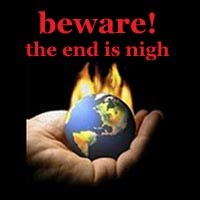by Grant Morgan
21 September 2011
The Mana Party's consolidated policy document was recently released (see below). Its contents are both predictable and surprising. Here's a concise overview:
The document is predictably strong on "bread and butter" issues for Maori and workers, but invisible on their political "agency" in changing the system.
The Mana Party's consolidated policy document was recently released (see below). Its contents are both predictable and surprising. Here's a concise overview:
The document is predictably strong on "bread and butter" issues for Maori and workers, but invisible on their political "agency" in changing the system.
- There are eight references to Maori, 10 to worker/s, and three to union/s. All these references are solely economic in character. So Maori, workers and unions are not given any political role in a systemic transition away from capitalism, or even away from the current neoliberal stage of capitalism.
- Accordingly, there is not a single reference to "capitalism", "capitalist", "neoliberal" or even "class". And just one passing reference to "market". Despite the presence of many self-described socialists within Mana, no mention is made of the words "socialism" or "socialist".
- Nevertheless, there are important policy assaults on financialisation, which is the central pillar of neoliberalism. So the document advocates the abolition of GST, the introduction of a financial speculation tax, reduced income tax for the poor and steeper income tax for the wealthy, a capital gains tax and other tax policies which would confront financialisation without mentioning the words "neoliberalism" or capitalism".
- Overall, the document is reasonable on immediate "bread and butter" issues, but sidesteps the questions of political economy and political "agency". The inference is that voters should leave politics in the hands of Mana politicians, since nobody else is given a system change role. My mark: B+.
It is surprisingly weak on Te Tiriti o Waitangi and tino rangatiratanga.
- The treaty/tino rangatiratanga are linked four times to constitutional matters. But these references are very brief and abstract, leaving no meat on these constitutional bones.
- Plus there are two references to the treaty in regards to economic matters.
- Overall, a disappointing result from a party whose main membership consists of flaxroots Maori steeped in Te Tiriti and tino rangatiratanga. My mark: C.
And it is predictably woeful on ecological matters.
- There is not a single reference to "ecology" in the policy document.
- There is just one passing reference to "ecological" in a sentence where it's buried under social, economic and spiritual issues.
- The word "environment" appears three times, but only in reference to our social/legal environment, not the world of nature.
- The word "environmental" appears twice, but only in passing and buried under social, cultural and economic issues.
- The word "sustainable" is used three times each in reference to transport and housing, which of course intersect with the natural environment, but the linkage is weak in the document. Mostly there's an economic aura given to "sustainable", which also appears five times in direct reference to the economy.
- Climate change is probably the gravest emergency facing humanity today, threatening catastrophes on a primeval scale. Incredibly, Mana's manifesto makes merely two references to climate change/global warming. And one reference is merely economic, referencing the monetary cost of climate change policies. The other reference is part of a general statement on a post-oil future.
- Overall, a disjointed, abstract and unconvincing approach to ecology. There's no sense that systemic alternatives to climate change and other capitalist erosions of the natural basis for life on Earth should be woven into every fibre of Mana's policy. My mark: C-.
Of course, we cannot define any party by way of its policy manifesto alone. Usually the social character and track record of party members, and especially party leaders, is at least as important.
But my overall impression of Mana's consolidated policy document is of punches pulled and opportunities missed in the arenas of political economy, political agency and constitutional remodeling. And, regarding the life-sustaining world of nature, I see a party manifesto that is lamentably weak, despite several disconnected references to a "post-carbon world".
Therefore, my overall mark for Mana's predictable and surprising manifesto would be somewhere between a B- and a C+.
I hope that Mana does well in this year's parliamentary election, though my hopes are based more on good people in the party than on this rather disappointing manifesto.
I also hope that the Green Party and candidates from Labour's left wing do well at the polls, and that they get together with Mana to start forging a Left Bloc that at the very least begins to roll back neoliberalism and tackle climate change.







